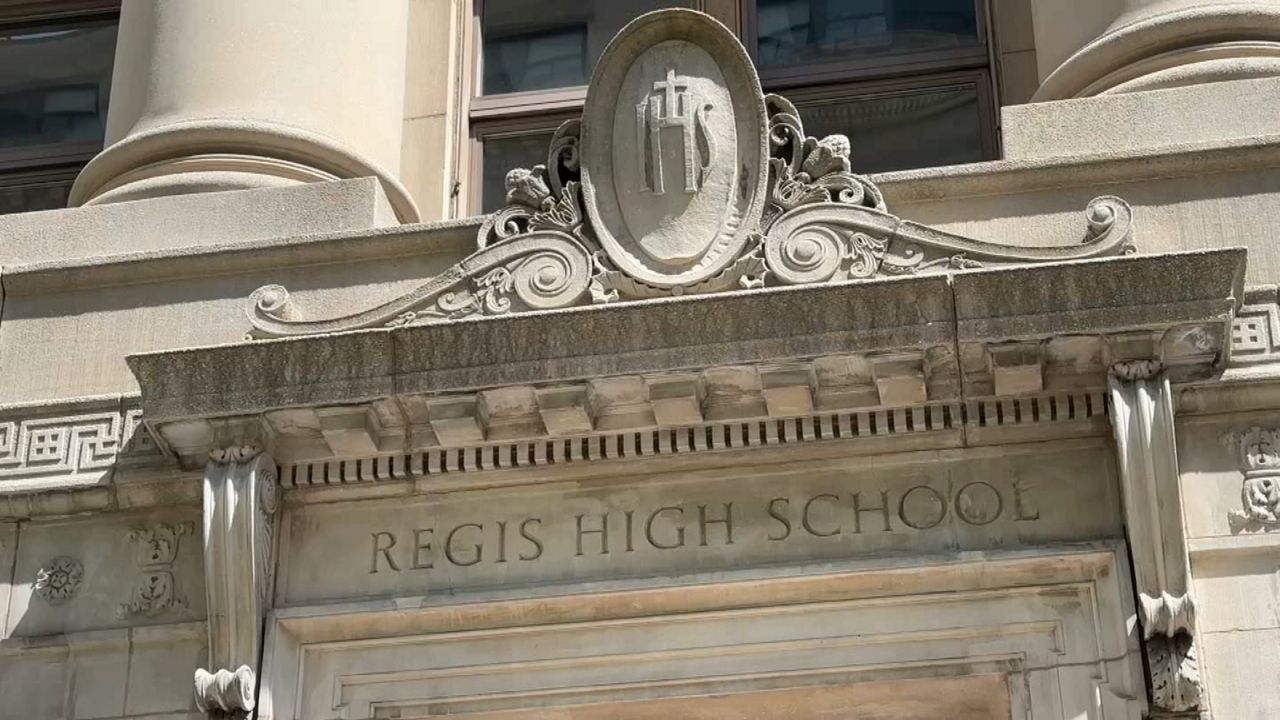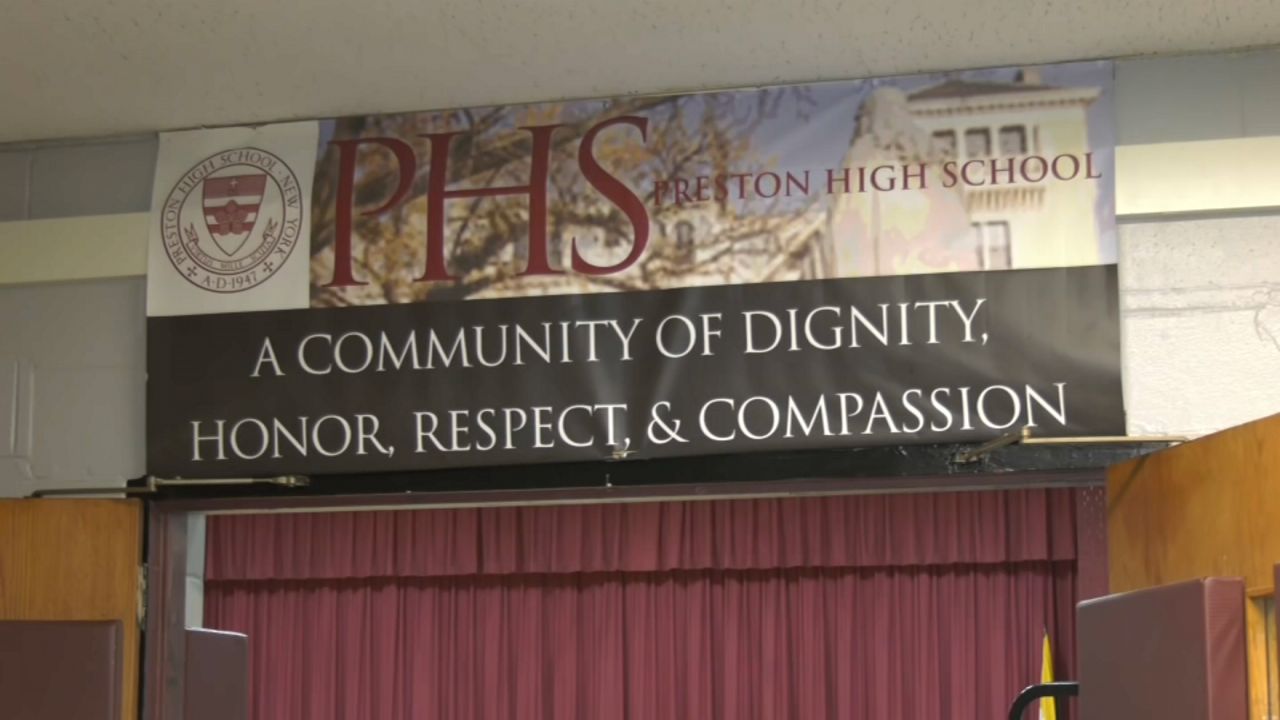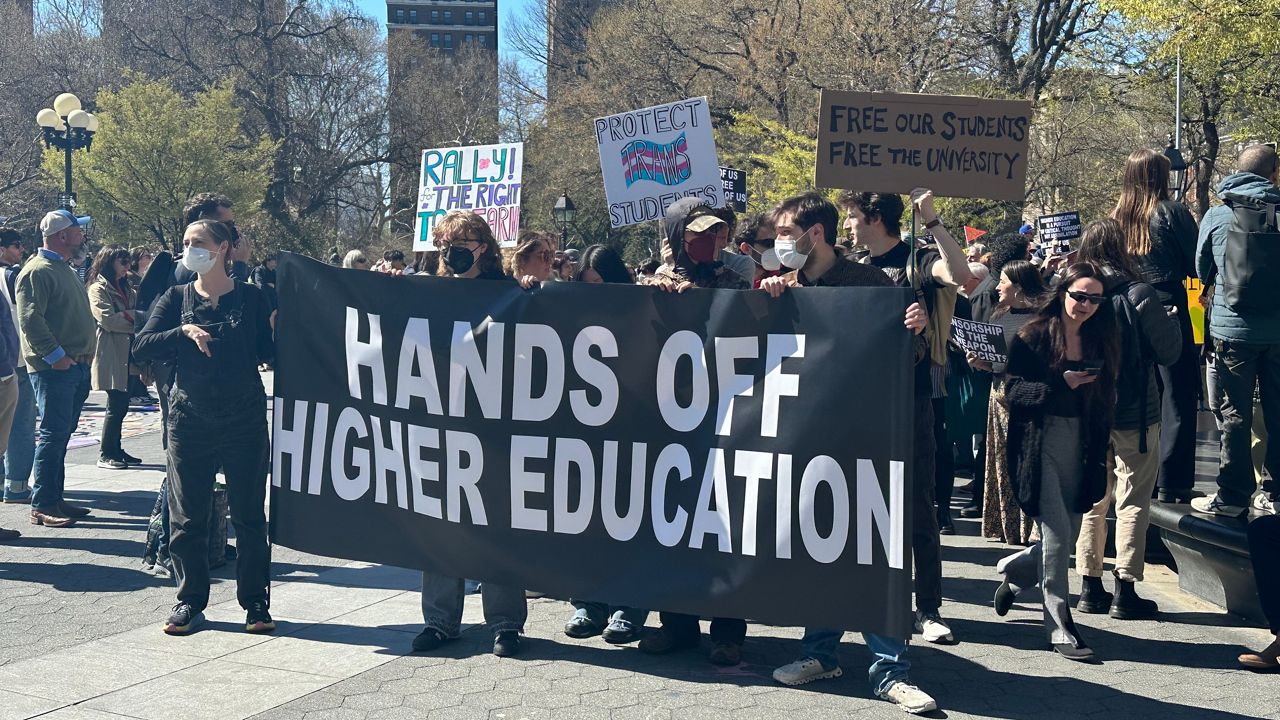With the city considering a cellphone ban in schools, parent Linda Quarles thinks it ought to be called something else.
“A ban is inherently a negative thing, where you’re taking something away. And I think we’re actually doing the opposite here. We’re giving something to them — we’re giving them, sort of the ability to relate better. We’re giving the ability to focus,” Quarles said.
Quarles serves on the Citywide Council on High Schools, and favors removing cellphones from classrooms. She says she was surprised to learn her kids support it, too.
“We’re asking a lot of these kids during the school day. They’re taking in a lot of information and any, like, real estate in their brain that is being taken up by something else is going to be a sacrifice of that,” she said.
Former Mayor de Blasio overturned a prior ban on cellphones in 2015. But the ubiquity of smartphones — and the distracting, and some critics say, addictive social media apps on them — has districts nationwide banning them.
Many students in the city commute long distances on public transit, especially to high schools. So, the city is considering how to allow students to travel with their phones, but lock them away during the day.
Some city schools already have such policies. But Deborah Alexander, another parent on the Citywide Council on High Schools, questions if they can work at scale.
“My child goes to a school with 3,000 kids. There are — Brooklyn Tech, as we know, has 6,000 kids. What works for a school of 700 kids is not necessarily going to work,” Alexander said.
Some schools use pouches, which can be magnetically locked for the duration of the school day. But they’re not unbeatable or cheap: they can cost up to $30 each. Using them could also require kids to arrive earlier and leave later as they wait for pouches to be unlocked.
“There are real costs and figuring out who’s going to bear them and how this is going to be implemented is why this policy is being slowed down and why we may not see an announcement of a policy until January or February,” Aaron Pallas, a professor at Columbia University’s Teachers College, said.
The cost also presents equity issues if schools will be required to pay for solutions like pouches using their own budgets: some schools in the city have PTAs that raise hundreds of thousands of dollars annually and could cover the costs, while others would have to dip into money used for teachers, supplies or extra programming.
In addition to logistical concerns, Alexander has ideological problems with a ban: Kids, who will have access to cellphones when they get to college, should learn to use technology responsibly, she says, rather than not at all.
“If we’re talking about schools and teachers, let’s teach our kids — because it’s only going to backfire. They are too smart. They know how to get around it. We’re going to wind up exactly where we are, just enriching the pockets of this giant corporation who can’t wait to sell us their pouches,” Alexander said.




_PKG_BTS_Phones_CLEAN_130859913_0?wid=320&hei=180&$wide-bg$)

_Dnt_Budget_-_PS_Cell_Phone_Ban_Clean)
_CGPK_CUNY_Student_Protest_Encampents_2025_CG_134055132_345)


_DNT_Columbia_Protest_CLEAN_FOR_APPROVAL)
